Computers, the Internet, and the Abdication of Consciousness – made me think
“Only if we counter these technologies with a greater power of attention to the specific, the qualitative, the local, the here and now, can we keep our balance. This is the general rule, first voiced, so far as I know, by Rudolf Steiner: To the extent we commit ourselves more fully to a machine-mediated existence, we must reach more determinedly toward the highest regions of our selves; otherwise, we will progressively lose our humanity.”
Computers, the Internet, and the Abdication of Consciousness
https://natureinstitute.org/txt/st/jung.htm
via Instapaper
Computers, the Internet, and the Abdication of Consciousness
https://natureinstitute.org/txt/st/jung.htm
via Instapaper
14
Feb 2016
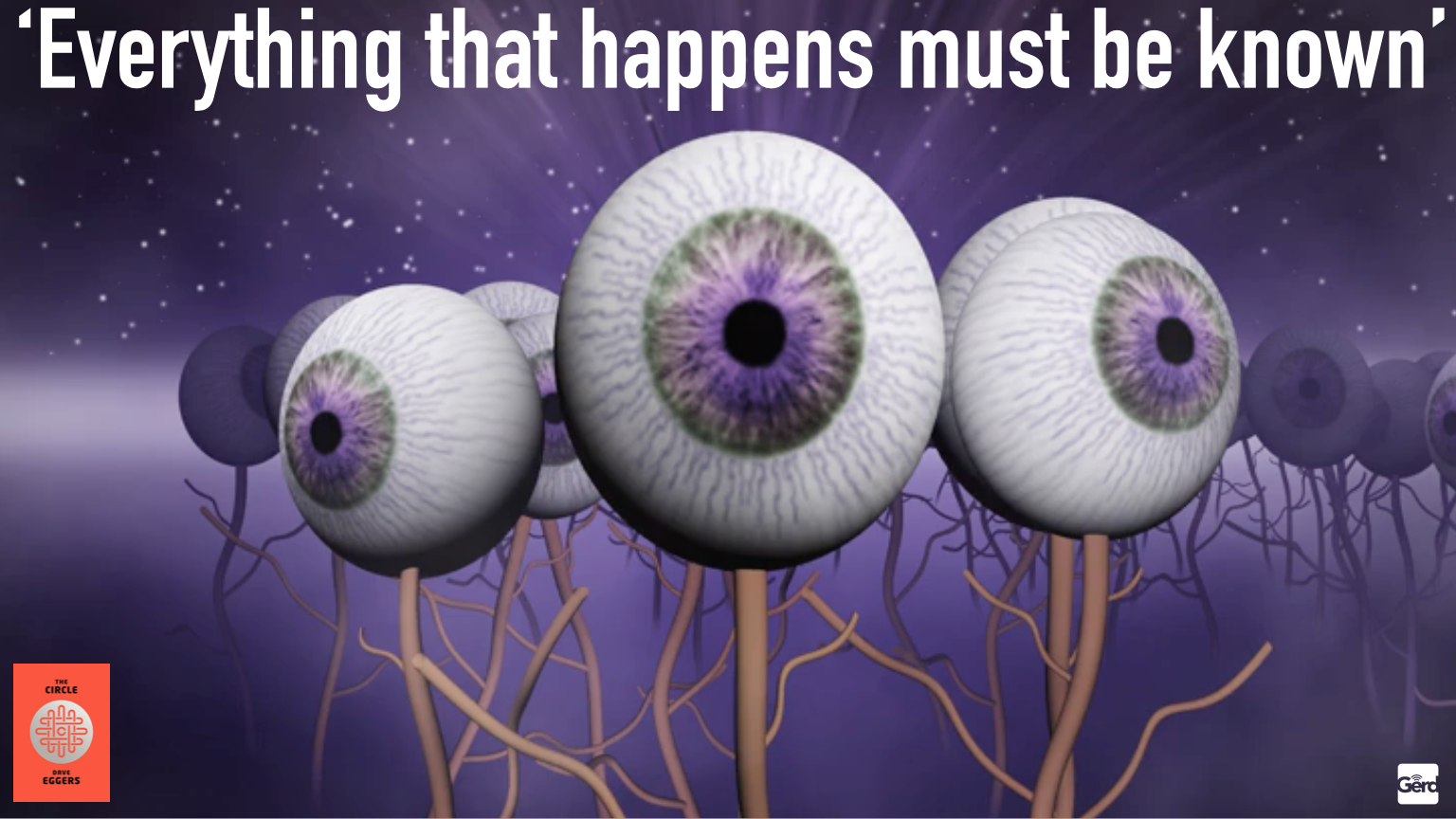
Internet of Things could be used as spy tool by governments says US intel chief (Arstechnica), and Bruce Schneier on the IoT
“In the future, intelligence services might use the loT for identification, surveillance, monitoring, location tracking, and targeting for recruitment, or to gain access to networks or user credentials," Clapper said (PDF), according to his prepared testimony before the Senate Select Committee on Intelligence.”
Internet of Things to be used as spy tool by governments: US intel chief
https://arstechnica.com/tech-policy/2016/02/us-intelligence-chief-says-iot-climate-change-add-to-global-instability/
via Instapaper
Internet of Things to be used as spy tool by governments: US intel chief
https://arstechnica.com/tech-policy/2016/02/us-intelligence-chief-says-iot-climate-change-add-to-global-instability/
via Instapaper
11
Feb 2016
TED isn’t a cult. Here’s what attendees actually believe
“Science, philosophy and technology run on the model of American Idol - as embodied by TED talks - is a recipe for civilisational disaster" wrote TED critic Benjamin Bratton for the BBC. TED, he argued, makes solutions to difficult problems seem all-too-easy. "Given the stakes, making our best and brightest waste their time - and the audience's time - dancing like infomercial hosts is too high a price."”
TED isn't a cult. Here's what attendees actually believe
https://www.businessinsider.in/TED-isnt-a-cult-Heres-what-attendees-actually-believe/articleshow/50909731.cms
via Instapaper
TED isn't a cult. Here's what attendees actually believe
https://www.businessinsider.in/TED-isnt-a-cult-Heres-what-attendees-actually-believe/articleshow/50909731.cms
via Instapaper
10
Feb 2016
Internet (of Things) ethics
“The ‘Internet of Things’ needs to be better managed from an ethical standpoint, says an article in European Business Review co-authored by Professor David De Cremer of Cambridge Judge.”
Internet (of Things) ethics
https://www.cambridgenetwork.co.uk/news/internet-of-things-ethics/
via Instapaper
Internet (of Things) ethics
https://www.cambridgenetwork.co.uk/news/internet-of-things-ethics/
via Instapaper
Ain't that the truth!
10
Feb 2016
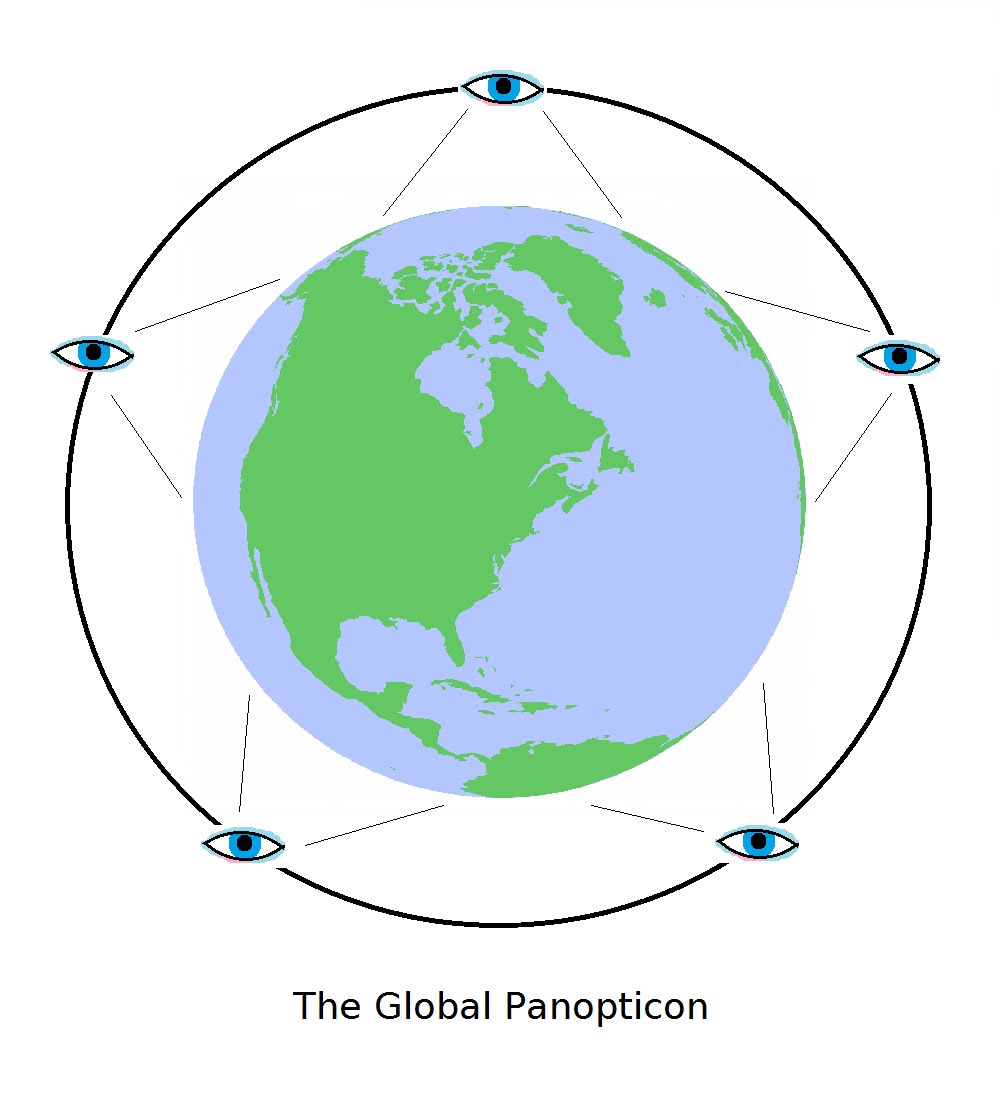
About Facebook anxiety
“there remain plenty of Facebook detractors. The Kernel shone a baleful light on “Facebook anxiety” comparing the experience of flicking through the curated feeds of friends to that of being an inmate of the infamous Panopticon:
Researchers linked a high number of Facebook friends with feeling burdened or stressed out by the site. our desire to lurk and unhealthily peer into the lives of those around us is built into the experience itself. … the site [is like] an 18th century “panopticon”—a type of prison that allowed inmates to be viewed by guards at all times. “We know what all the prisoners are showing us from their jail cells,””
Week 4 | import digest
https://malm.teqy.net/2016/01/31/week-4-2/
via Instapaper
Researchers linked a high number of Facebook friends with feeling burdened or stressed out by the site. our desire to lurk and unhealthily peer into the lives of those around us is built into the experience itself. … the site [is like] an 18th century “panopticon”—a type of prison that allowed inmates to be viewed by guards at all times. “We know what all the prisoners are showing us from their jail cells,””
Week 4 | import digest
https://malm.teqy.net/2016/01/31/week-4-2/
via Instapaper
02
Feb 2016
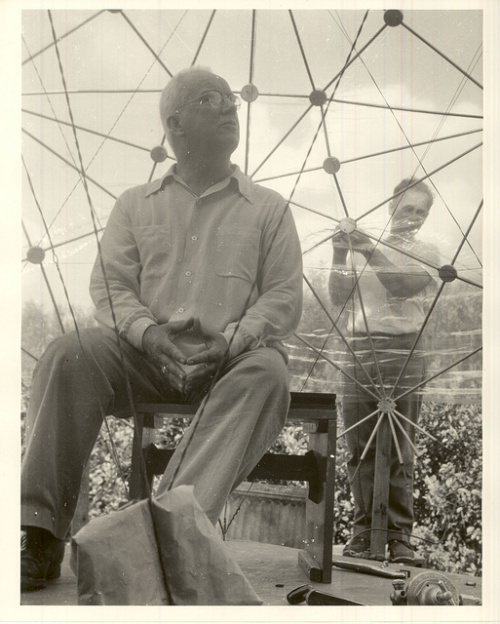
Some Buckminster Fuller Bottom Lines (via BrainPickings)
“Fuller then moves on to the vital distinction between money-work and purpose, debunking the myth of the zero-sum game of prosperity:
It is also mistakenly assumed that employment is the only means by which humans can earn the right to live, for politicians have yet to discover how much wealth is available for distribution. All this is rationalized on the now scientifically discredited premise that there can never be enough life support for all. Thus humanity’s specialization leads only toward warring and such devastating tools, both, visible and invisible, as ultimately to destroy all Earthians.
[…]
It is eminently feasible not only to provide full life support for all humans but also to permit all humans’ individual enjoyment of all the Earth without anyone profiting at the expense of another and without any individuals interfering with others.”
Buckminster Fuller’s Manifesto for the Genius of Generalists
https://www.brainpickings.org/2013/03/08/buckminster-fuller-synergetics/
via Instapaper
It is also mistakenly assumed that employment is the only means by which humans can earn the right to live, for politicians have yet to discover how much wealth is available for distribution. All this is rationalized on the now scientifically discredited premise that there can never be enough life support for all. Thus humanity’s specialization leads only toward warring and such devastating tools, both, visible and invisible, as ultimately to destroy all Earthians.
[…]
It is eminently feasible not only to provide full life support for all humans but also to permit all humans’ individual enjoyment of all the Earth without anyone profiting at the expense of another and without any individuals interfering with others.”
Buckminster Fuller’s Manifesto for the Genius of Generalists
https://www.brainpickings.org/2013/03/08/buckminster-fuller-synergetics/
via Instapaper
31
Jan 2016
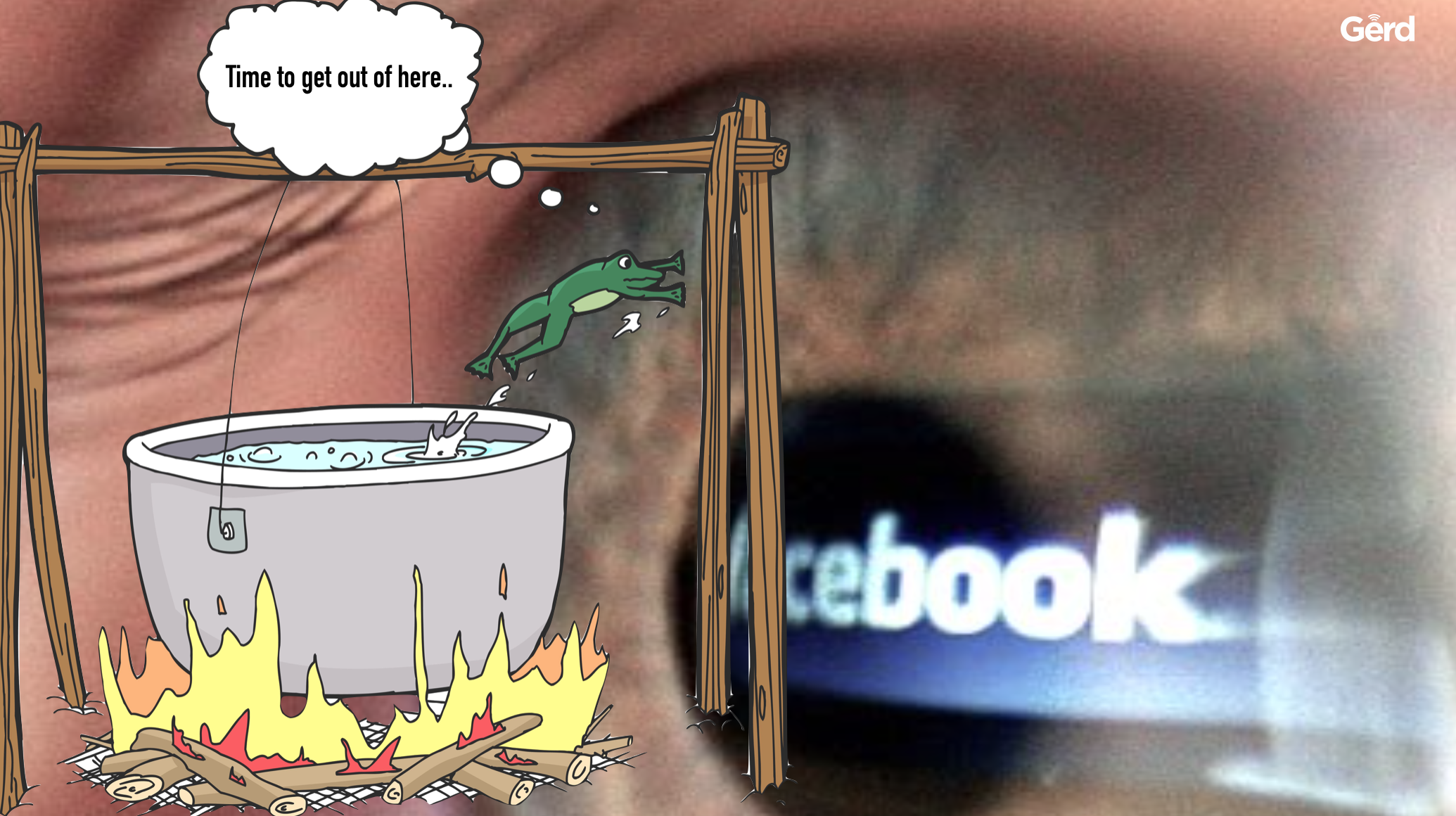
The evilfication of Facebook: boiling frogs, faustian bargains, and the pleasure trap: 10 arguments for quitting Facebook (UPDATED)
This post will be updated regularly as I'm deciding on ...
28
Jan 2016
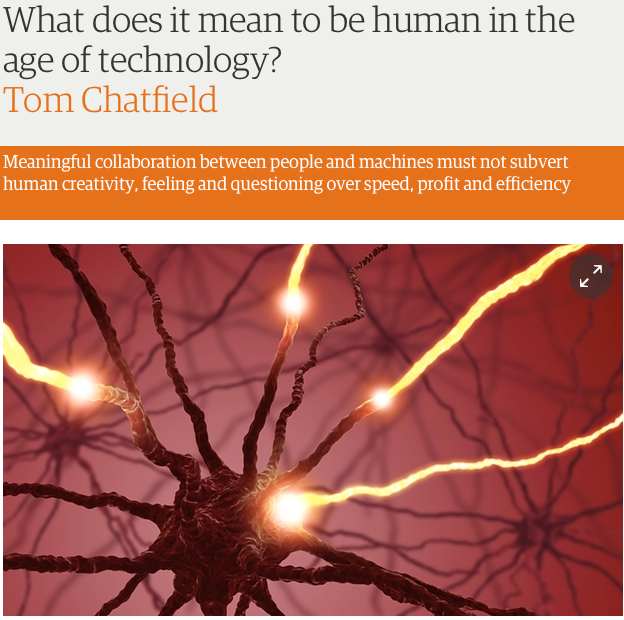
What does it mean to be human in the age of technology? (Tom Chatfield – The Guardian)
“This is an astonishing, disconcerting, delightful thing: the crowd in the cloud becoming a stream of shared consciousness.
We think of ourselves as individual, rational minds, and describe our relationships with technology on this basis”
What does it mean to be human in the age of technology?
https://www.theguardian.com/technology/2016/jan/20/humans-machines-technology-digital-age
via Instapaper
We think of ourselves as individual, rational minds, and describe our relationships with technology on this basis”
What does it mean to be human in the age of technology?
https://www.theguardian.com/technology/2016/jan/20/humans-machines-technology-digital-age
via Instapaper
26
Jan 2016
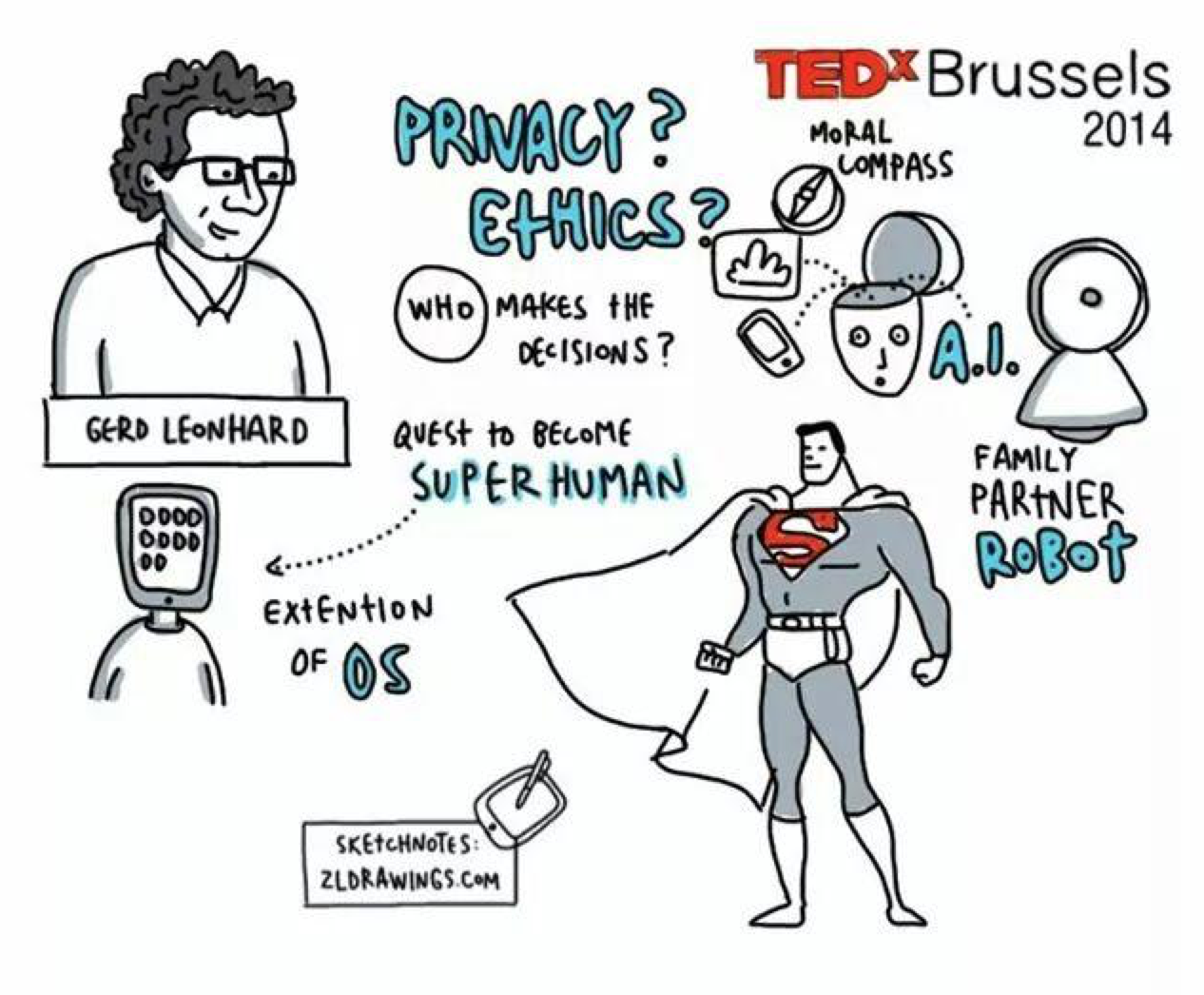
Digital Ethics: The role of the CIO in balancing the risks and rewards of digital innovation
“What is digital ethics?
In our hyper-connected world, an explosion of data is combining with pattern recognition, machine learning, smart algorithms, and other intelligent software to underpin a new level of cognitive computing. More than ever, machines are capable of imitating human thinking and decision-making across a raft of workflows, which presents exciting opportunities for companies to drive highly personalized customer experiences, as well as unprecedented productivity, efficiency, and innovation. However, along with the benefits of this increased automation comes a greater risk for ethics to be compromised and human trust to be broken.
According to Gartner, digital ethics is the system of values and principles a company may embrace when conducting digital interactions between businesses, people and things. Digital ethics sits at the nexus of what is legally required; what can be made possible by digital technology; and what is morally desirable.”
MIS-Asia - Digital Ethics: The role of the CIO in balancing the risks and rewards of digital innovation
https://www.mis-asia.com/mgmt/it-governance/digital-ethics-the-role-of-the-cio-in-balancing-the-risks-and-rewards-of-digital-innovation/
via Instapaper
In our hyper-connected world, an explosion of data is combining with pattern recognition, machine learning, smart algorithms, and other intelligent software to underpin a new level of cognitive computing. More than ever, machines are capable of imitating human thinking and decision-making across a raft of workflows, which presents exciting opportunities for companies to drive highly personalized customer experiences, as well as unprecedented productivity, efficiency, and innovation. However, along with the benefits of this increased automation comes a greater risk for ethics to be compromised and human trust to be broken.
According to Gartner, digital ethics is the system of values and principles a company may embrace when conducting digital interactions between businesses, people and things. Digital ethics sits at the nexus of what is legally required; what can be made possible by digital technology; and what is morally desirable.”
MIS-Asia - Digital Ethics: The role of the CIO in balancing the risks and rewards of digital innovation
https://www.mis-asia.com/mgmt/it-governance/digital-ethics-the-role-of-the-cio-in-balancing-the-risks-and-rewards-of-digital-innovation/
via Instapaper
24
Jan 2016
Stop Being A Loner, It’ll Kill You: low social interaction has worse effects than obesity
“This paper mirrors the results of a 2013 study from Brigham Young University, which found that "low social interaction has the equivalent lifespan impact as smoking 15 cigarettes daily or being a raging alcoholic. Cutting yourself off from others is worse, even, than inactivity. And twice as bad as obesity."”
Stop Being A Loner, It'll Kill You
https://www.fastcoexist.com/3055386/stop-being-a-loner-itll-kill-you
via Instapaper
Stop Being A Loner, It'll Kill You
https://www.fastcoexist.com/3055386/stop-being-a-loner-itll-kill-you
via Instapaper
19
Jan 2016
Meet the digital dissenters: They’re fighting for a better internet. Made me think
“Where do humans fit into this new economy? Really not as creators of value, but as the content. We are the content. We are the data. We are the media. As you use a smartphone, your smartphone gets smarter, but you get dumber.”
Douglas Rushkoff, author of “Throwing Rocks at the Google Bus” █”
Meet the digital dissenters: They’re fighting for a better internet
https://www.washingtonpost.com/sf/national/2015/12/26/resistance/
via Instapaper
Douglas Rushkoff, author of “Throwing Rocks at the Google Bus” █”
Meet the digital dissenters: They’re fighting for a better internet
https://www.washingtonpost.com/sf/national/2015/12/26/resistance/
via Instapaper
16
Jan 2016

What if the Internet Really Isn’t Social? What If It’s the Opposite? (asks Jason Gots)
“Marc Potenza, a psychiatrist at Yale who primarily studies alcohol and drug addiction says that “some people have posited that the Internet is a vehicle and not a target of disorder.”
What If the Internet Really Isn't Social? What If It's the Opposite? | Big Think
https://bigthink.com/connected/internet-gaming-addiction?utm_campaign=Echobox&utm_medium=Social&utm_source=Facebook
via Instapaper
14
Jan 2016
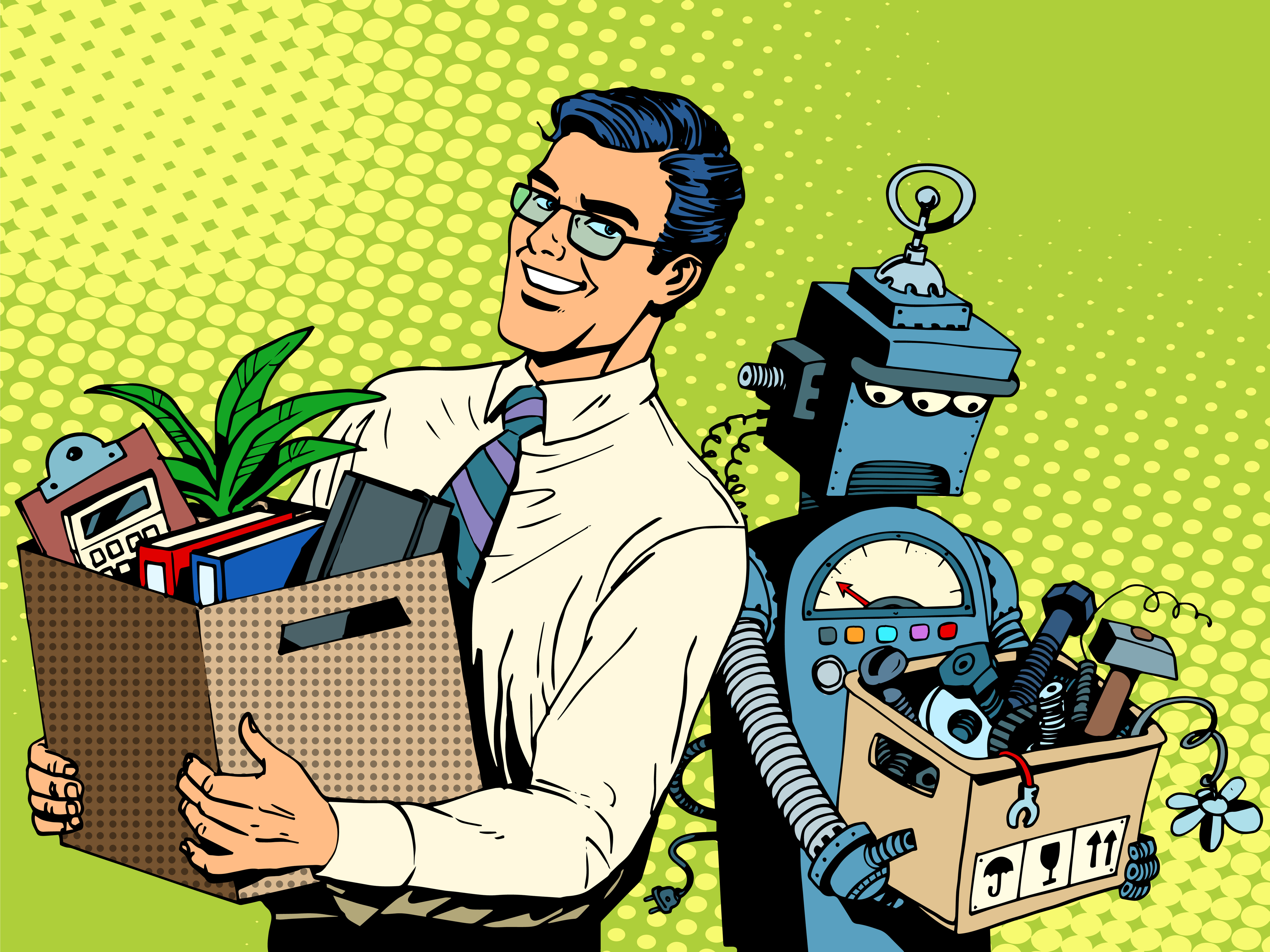
A Taste of the Future: good read by Kim Araz (work, automation and IoT)
“The fact is that sooner than we can imagine, there will be masses of educated people suddenly finding themselves out of a job, no longer having the relevant skills for the type of work that will be required. At the same time, the next generation isn’t being properly prepared for the types of vocations that will be needed, such as Data Scientists, Neuro-Implant Technicians and VR Experience Designers.”
A Taste of the Future
https://medium.com/@kimarazi/a-taste-of-the-future-a16672bc5c20
via Instapaper
A Taste of the Future
https://medium.com/@kimarazi/a-taste-of-the-future-a16672bc5c20
via Instapaper
14
Jan 2016
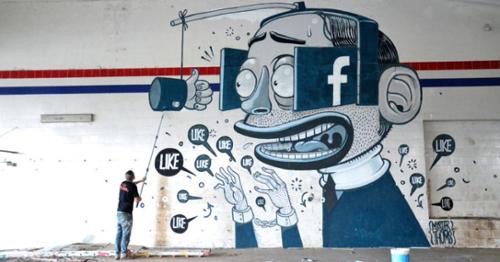
How Facebook Makes Us Dumber – confirmation bias is a huge issue on large social networks
“As Del Vicario and her coauthors put it, “users mostly tend to select and share content according to a specific narrative and to ignore the rest.” On Facebook, the result is the formation of a lot of “homogeneous, polarized clusters.” Within those clusters, new information moves quickly among friends (often in just a few hours).
The consequence is the “proliferation of biased narratives fomented by unsubstantiated rumors, mistrust, and paranoia.””
How Facebook Makes Us Dumber
https://www.bloombergview.com/articles/2016-01-08/how-facebook-makes-us-dumber
via Instapaper
The consequence is the “proliferation of biased narratives fomented by unsubstantiated rumors, mistrust, and paranoia.””
How Facebook Makes Us Dumber
https://www.bloombergview.com/articles/2016-01-08/how-facebook-makes-us-dumber
via Instapaper
13
Jan 2016
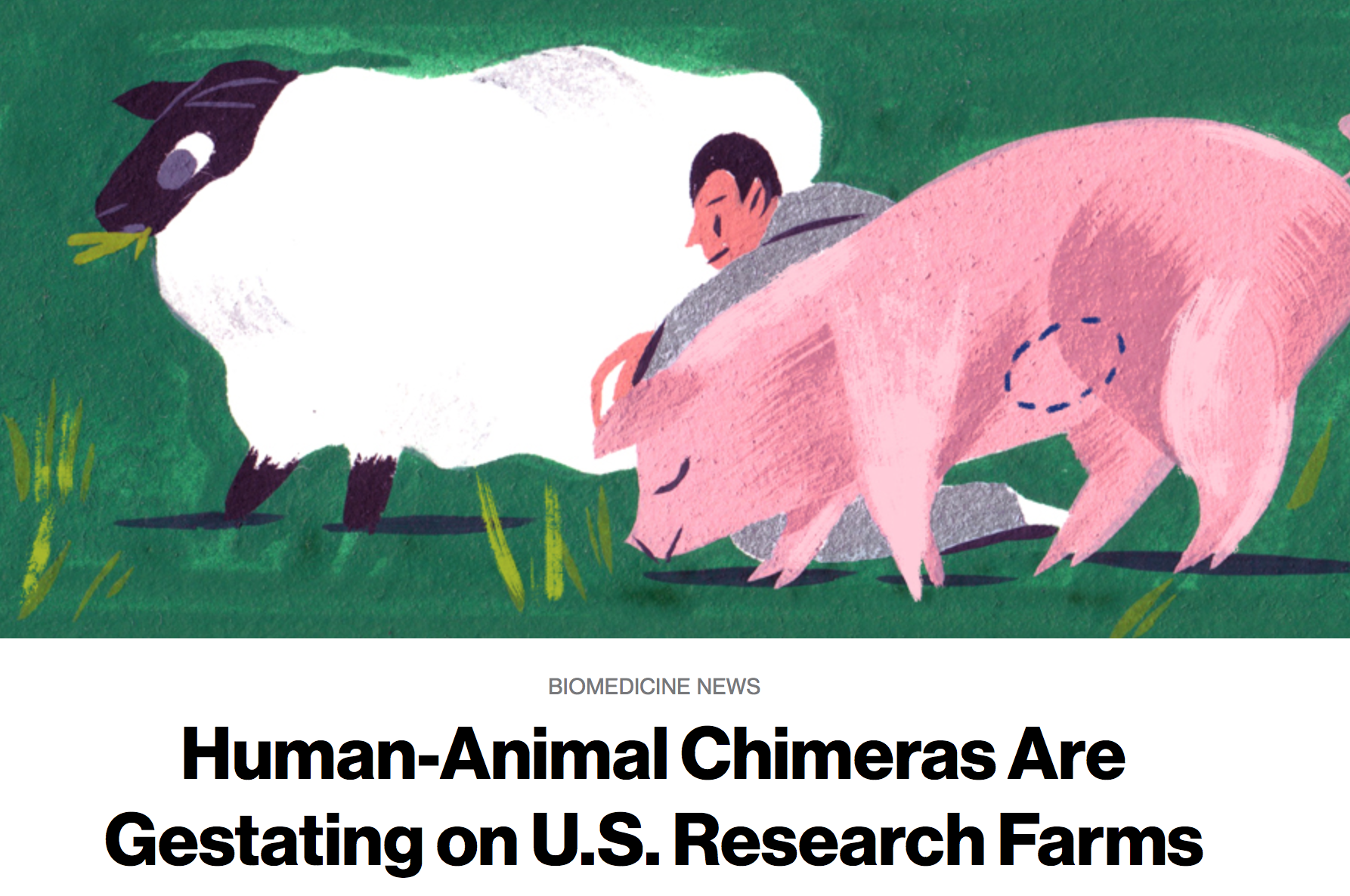
Will we see Human-Animal Chimeras soon (must read by MIT Technology Review)
“The effort to incubate organs in farm animals is ethically charged because it involves adding human cells to animal embryos in ways that could blur the line between species.
Last September, in a reversal of earlier policy, the National Institutes of Health announced it would not support studies involving such “human-animal chimeras” until it had reviewed the scientific and social implications more closely.”
Human-Animal Chimera | MIT Technology Review
https://www.technologyreview.com/news/545106/human-animal-chimeras-are-gestating-on-us-research-farms/
via Instapaper
Last September, in a reversal of earlier policy, the National Institutes of Health announced it would not support studies involving such “human-animal chimeras” until it had reviewed the scientific and social implications more closely.”
Human-Animal Chimera | MIT Technology Review
https://www.technologyreview.com/news/545106/human-animal-chimeras-are-gestating-on-us-research-farms/
via Instapaper
08
Jan 2016
Rushkoff on the future of work, automation and the economic OS
“we may come to see that the values of the industrial economy are not failing under the pressures of digital technology. Rather, digital technology is expressing and amplifying the embedded values of industrialism.”
Viewed in this light the Industrial Age may have had no more to do with making products better or more efficiently than simply removing human beings from the value equation, and monopolizing wealth at the top

the-future-of-work-rebooting-workprogramming-the-economy-for-people
https://www.psmag.com/business-economics/the-future-of-work-rebooting-workprogramming-the-economy-for-people
via Instapaper







